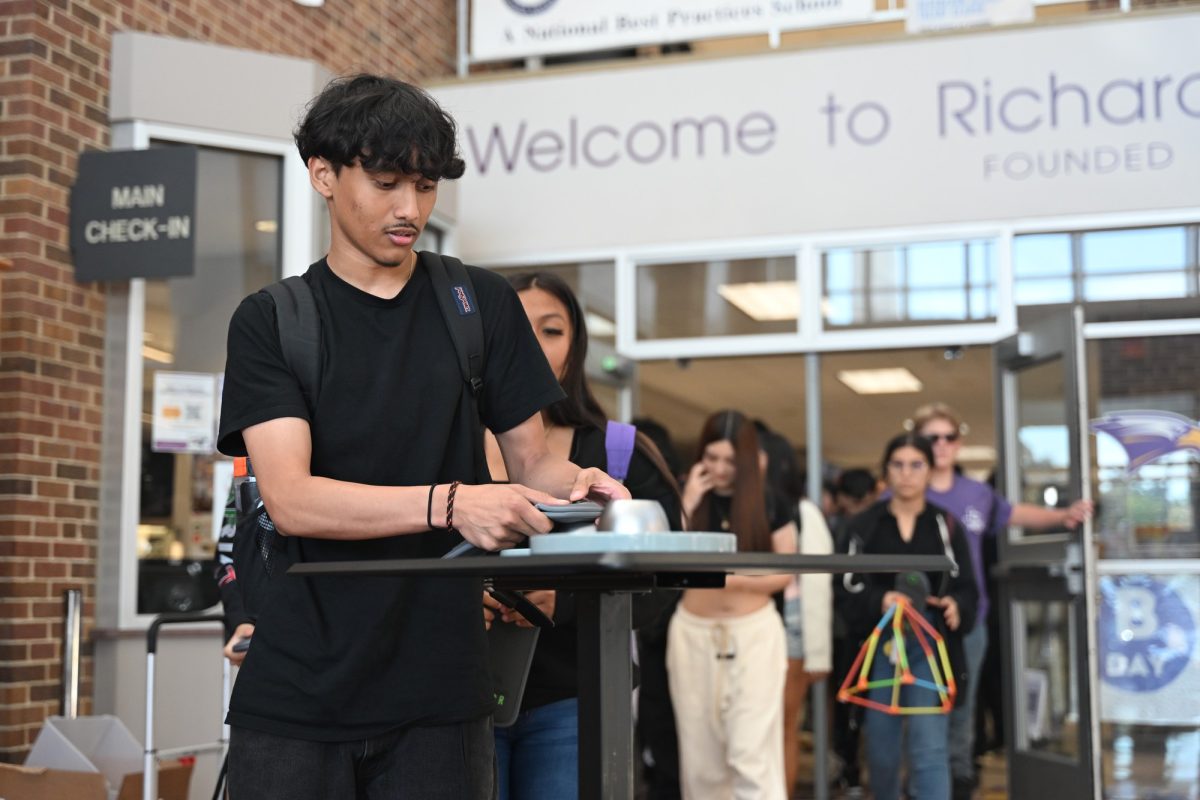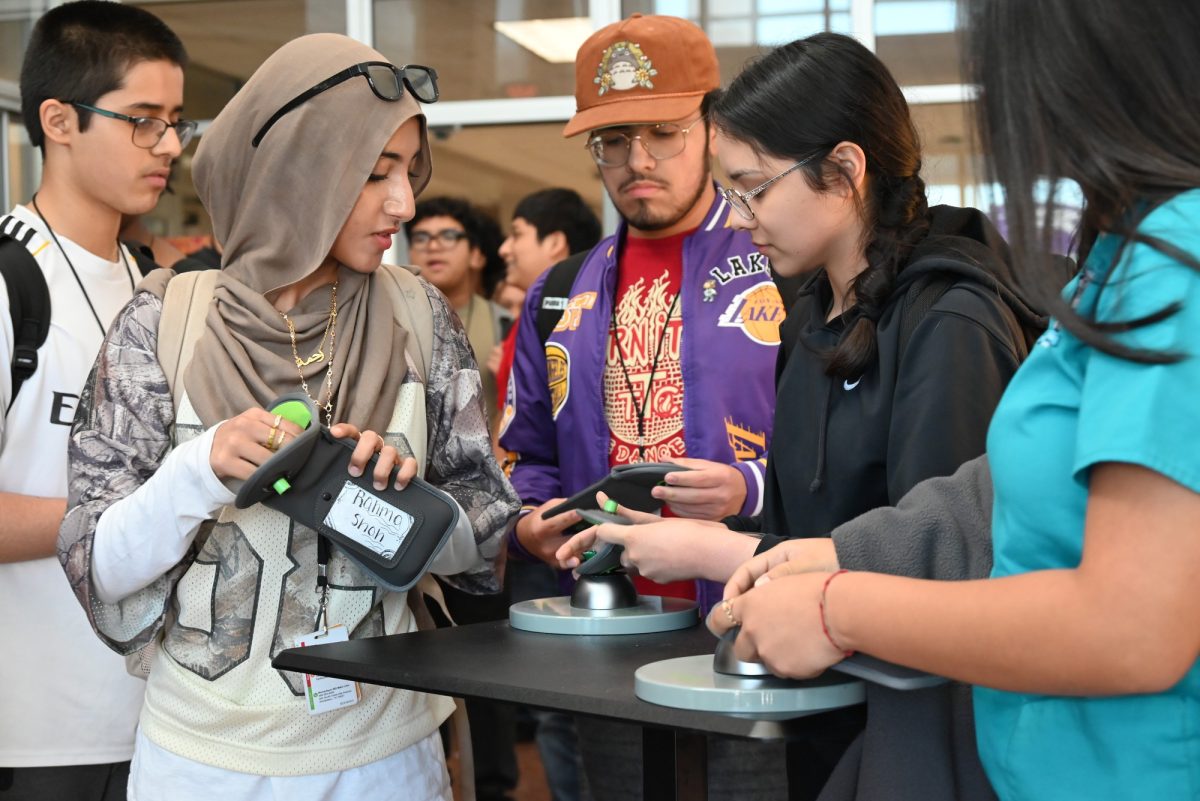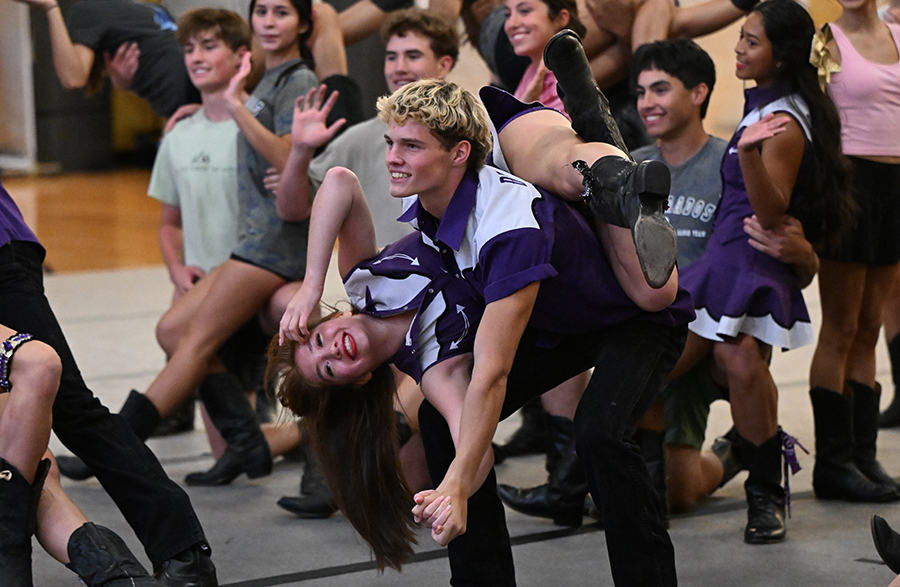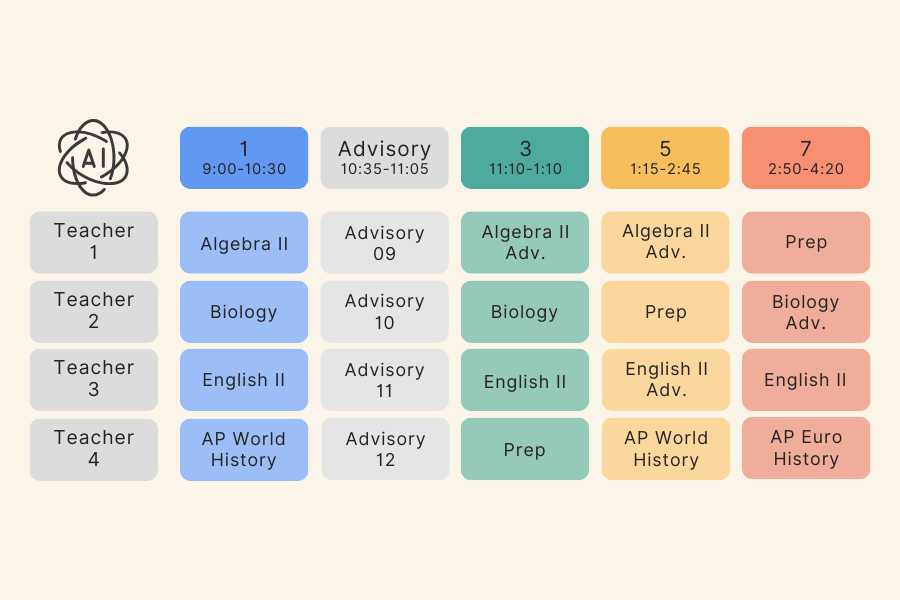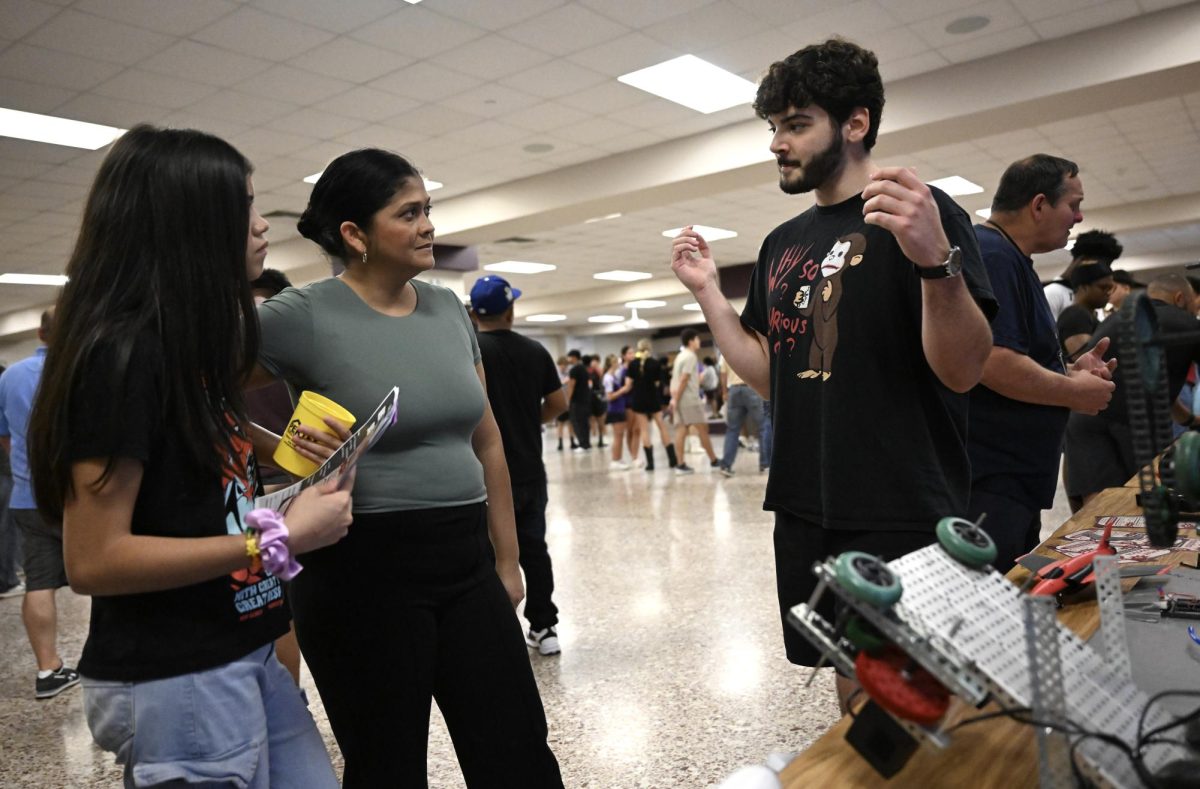The district is implementing a new phone policy this year that requires students to lock their personal devices like phones, wireless earbuds and smart watches in a Yondr pouch during school hours.
The purpose of the new policy is to create a cell phone free environment and prevent personal devices from being a distraction.
Principal Chris Choat said he recommended RHS to be included in the Yondr program because of last year’s discipline and behavioral issues.
“After trying it for a year to not implement the Yondr pouches, we found that with the number of students we have here, it’s very tough to manage the classrooms and the hallways,” Choat said.
AVID teacher and football coach Alan Copeland said the new phone policy is clear and prevents distracting conversations in class because it’s district wide.
“I thought this was awesome that the district went together on a policy that all the schools were in together,” Copeland said. “It was a very uniform, distinct and solid policy. So I was very happy that there’s some unity in that policy.”
Psychology teacher Bryce Seton-Rogers said if teachers are not implementing the phone policy correctly, it will create unevenness in whether or not students are following the policy.
Senior Abdallah Elithy said he feels that Yondr pouches are unnecessary and have caused problems for him during dismissal.
“I had to wait outside in 100 degree weather just looking after the car instead of waiting for [my mom] to call me,” Elithy said.
Choat said the consequences for the first offense of being caught with a phone out are that it gets taken up, and a message gets sent to the student’s parents to pick it up. On the second offense, it’s an automatic ISS, and on the third, a student receives ISS, and their parents have a conference about following the policy.
“They could take it upon themselves to not allow students to leave the house with device,” Choat said. “But typically on that third time, we’re going to be face to face with parents.”
Senior Sataha Khan said the increase in consequences for not following the new phone policy is severe, because it’s a very sudden change for people who always had their phones on them and are now being punished for it.
Copeland said three to four minutes have been added to the morning routine of Athletics because he has to check for Yondr pouches.
“That’s just transition time,” Copeland said. “I think it takes everybody when you bring something new about a week or two to just to understand it.”
Choat said after Forest Meadow Junior High did a pilot program for Yondr pouches, and saw positive student outcomes, Lake Highlands was chosen to be the high school pilot program last year.
“When you look at the survey data, teachers across the board at Lake Highland said their classroom was more engaged – the management of devices in the classroom was much easier,” Choat said. “So for the sake of students being engaged in the learning, we felt that was the right time for us.”
Choat said there were roughly 1700 discipline incidents last year, and about 85 percent of those revolved around a phone.
“We’ve already seen in our data how [disciplinary incidents are] going down, because we compare it by month from last year to this year,” Choat said. “And looking at the first month, we’ve already seen that decrease.”
Choat said if a teacher sees a student with their phone and earbuds out, they can take it up. If the student isn’t willing, then they can note the location and time and the administrators will identify the student on camera to pull them out of class.
“What we tell our teachers is to be out in the hallways and constantly remind no earbuds, no phones,” Choat said.
Choat said there was a huge majority of students with their earbuds in the hallway, and if a teacher asks to see their ID, they wouldn’t hear them because they had earbuds in, so they had to be included in the new policy.
Copeland said with wireless earbuds being a part of the Yondr policy, students don’t have any noise to distract them from talking or from being involved in the lesson.
“We still had a classroom discussion, but I can definitely tell there’s more involvement in it and more willingness to talk,” Copeland said.
Senior Yahya Boudali said while Yondr pouches limit distractions for him, people are trying to find other ways to get distracted so the overall benefits aren’t as good as they seem.
Khan said the school should teach students how to smartly use their phones to help their studies instead of taking them away completely during the school day to solve the problem of distractions.
“Being a part of a community, whether it be teachers or students who aren’t in favor of [the policy], we just asked them to abide by it because we know it’s going to help our school in general,” Choat said.
Rogers said he has seen his students have separation anxiety from their phone in the classroom but they are still interacting and being productive in the classroom.
“They’re doing okay,” Rogers said. “So I think it’s just an adjustment period of not having your phone all the time.”
Choat said on the first day of implementation, they had everybody in the doors by 9:07 a.m. At the end of that first week, everyone who showed up on time was in the doors by 9:00 a.m. by having teachers on morning duty every fourth week at the entry and exit locations.
“It’s a change for our staff. It’s a change for our students,” Choat said. “But we felt very good about where we are with the whole procedural aspect of it.”
Choat said he’s seeing the lunchrooms getting louder because everyone is talking to each other more but it’s a good trade off from being on their phones.
Choat said the district had money set aside for Yondr pouches when they started having conversations about it three years ago.
“The district has made a substantial investment in these and they’re not going to go away,” Director of Student Services Jason Tharp said.
He said they can easily tell whether or not a Yondr pouch was broken on purpose by looking at the pouch.
“If you’re bending the mechanism that goes in and locks the pin – If it’s really bent, usually a kid would have to really take some effort to do that,” Tharp said.
Rogers said he’s used the Yondr pouch policy as an example of independent and dependent variables in an experiment by explaining that they’re trying to test more academic engagement from students.
“We were talking about confounding variables like students breaking their Yondr pouches, bringing magnets and burner phones,” Rogers said. “The stuff that’s hard to account for.”
Choat said his goals for the end of the school year are more engagement in the classrooms and a decrease in poor behaviors relating to phones.
“If we can look to those two things and say that we’ve accomplished those two things, I think it will have been a successful year,” Choat said.

